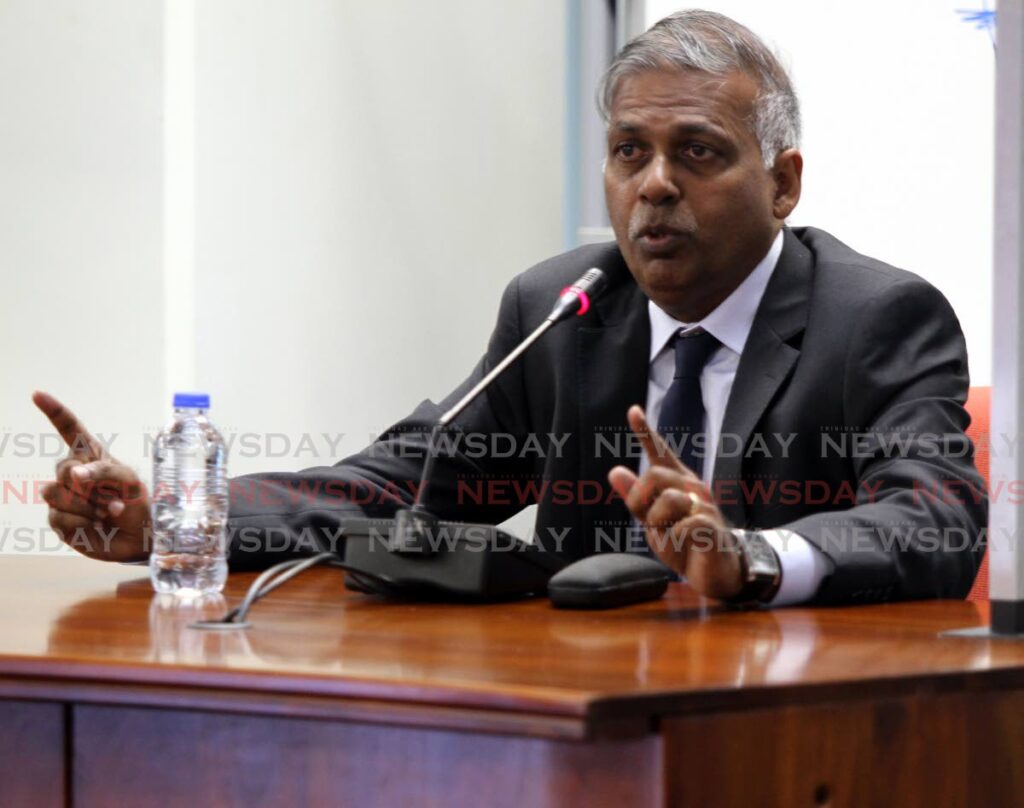Paria manager: No one offered a solid rescue plan

WHILE several offers were made to rescue divers trapped in an undersea oil pipeline belonging to Paria Fuel Trading Company Ltd, no solid rescue plan was presented to Paria by anyone, said Paria terminal and trading manager Mushtaq Mohammed on Wednesday.
He was testifying at the Commission of Enquiry (CoE) under chairman Jerome Lynch KC into the tragic deaths on February 25 of four divers doing repairs on a pipeline into which they were then sucked along with a colleague who managed to escape.
The hearing was held at the International Waterfront Centre, Port of Spain. "No clear dive plan was communicated to me," Mohammed said.
CoE counsel Ramesh Maharaj initially asked if Paria had set a rescue time line. Mohammed denied any specific time line but said they were working "very assiduously", probably towards a six-12 hour time line. Lynch asked about Paria asking the Coast Guard to secure the site against unofficial rescue divers. Mohammed said his orders did not debar anyone entering the hyperbaric chamber nor the open seas but only into the pipeline. "The buck stops with me," he said.
Lynch asked if Paria would have developed an emergency response plan if they ever predicted a risk from Delta P, a sharp differential in pressure found to have sucked the divers into the pipeline.
Mohammed said if Delta P had ever been mulled, rather than a rescue plan Paria would have sought a different way to do that job.
Maharaj chided that the morning after the men had disappeared on February 25, Paria was still merely seeking video footage of conditions inside the pipeline.
Mohammed retorted by asking the hearing to consider all the activity done since the men had been sucked in. He said LMCS were the first responders, even as Paria began searching the sea for the men and called in experts and the Coast Guard to consult on whether diving was feasible. He said it was incorrect to say Paria was merely waiting on footage.
Maharaj asked if before any rescue attempt was made, Paria had first wanted documents known as method statement, job hazard analysis and rescue plan, asking, "You wanted them written?"
Mohammed replied that he had wanted "a well thought out plan."
He said up to 4am on February 26 Paria was working on a rescue plan with several agencies.
Maharaj said LMCS had a rescue plan. Mohammed replied, "There was a method LMCS was suggesting. I'd not call it a rescue plan."
Maharaj said LMCS diver Andrew Farah had a plan and had wanted to enter the pipeline but was prevented.
Mohammed said he did not consider Farah to have a viable plan and was concerned for his safety.
Pressed at length by Lynch as to whether he had prevented Farah entering the pipeline, Mohammed said he was seeking to prevent him entering with a plan that ignored the possible risk.
Lynch pressed as to whether Mohammed had prevented Farah entering the pipeline. Mohammed replied, "I'd probably say yes."
Mohammed did not know of a plan for diver Conan Beddoe to enter the pipeline. Pressed by Lynch about Farah's plan, Mohammed said no clear dive plan was communicated to him.
Maharaj asked about the arrival of divers and equipment from Subsea Global Solutions (SGS). Mohammed said the Coast Guard and other diving firms said it was to risky to enter the pipeline.
Asked by Maharaj if Paria had talked to SGS, Mohammed replied, "No. We did not speak to them." He again said the Coast Guard and diving companies said entering the pipeline was too risky.
"Going into the pipeline was a very complex thing. Unknown conditions existed in the pipeline."
Lynch asked if there were any circumstances under which he would allow entry to a pipeline without footage of the conditions.
Mohammed paused for four seconds. He replied, "I'd probably say the answer is no."
He said a camera had entered 600 feet into the pipeline and found no one, compared to a diver entering just 100-120 feet.
Otherwise, Mohammed earlier said Paria was commonly engaged in dangerous work, saying as he spoke staff were doing welding at a high elevation or working on high voltage facilities.
On a personal note he said it was very unfortunate the four men had died. "I can't explain to you how it feels to be sitting here on this end of a microphone."


Comments
"Paria manager: No one offered a solid rescue plan"